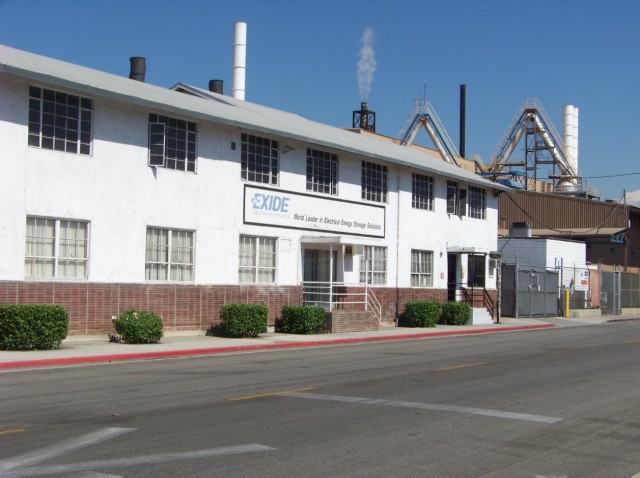In addition to new testing requirements, the DTSC also ordered Exide to develop plans to address lead concentrations in residential yards where it exceeds acceptable levels. Priority will be given to homes occupied by pregnant women or children, according to an agency advisory.
The DTSC cautioned people living in the area to keep children away from areas of bare soil and to wash their hands thoroughly, especially when they come inside. Residents should put door mats inside and outside entrances to their homes, only grow produce in raised planter boxes and thoroughly wash any home-gown produce before eating it, the agency warned.
Exposure to lead can cause significant and permanent developmental problems in children and can harm adults as well, according to the Centers for Disease Control.
Officials plan a community meeting in Boyle Heights to discuss the testing on March 19.
The plant has a long history of air pollution write-ups, including repeated allegations that it allowed lead dust to contaminate the surrounding neighborhood, regulators say. Still, the DTSC allowed the factory, which can melt tens of thousands of batteries a day, to operate on “interim status” for some 30 years.
Last April, the DTSC ordered Exide to suspend operations. Regulators said arsenic emissions from the plant endangered as many as 110,000 people living nearby. The South Coast Air Quality Management District estimated cancer risk from the airborne arsenic at up to 15 times state standards.
In January, the AQMD sued, seeking up to $40 million in penalties stemming from alleged illegal emissions of lead and arsenic at the plant.
Preliminary test results from the February samples did not find elevated arsenic concentrations in the soil, DTSC officials said.
Exide issued a statement Wednesday morning as follows:
Exide is studying the department’s response and will work cooperatively to conduct the requested additional sampling and the interim clean up measures. The health and safety of the community, as well as its workforce, are important to Exide and the company is committed to investing in the Vernon facility to further reduce emissions and protect public health.
[contextly_auto_sidebar id="bPn8qfOU9EGGcyHTrunpeJe8koa7H093"]
